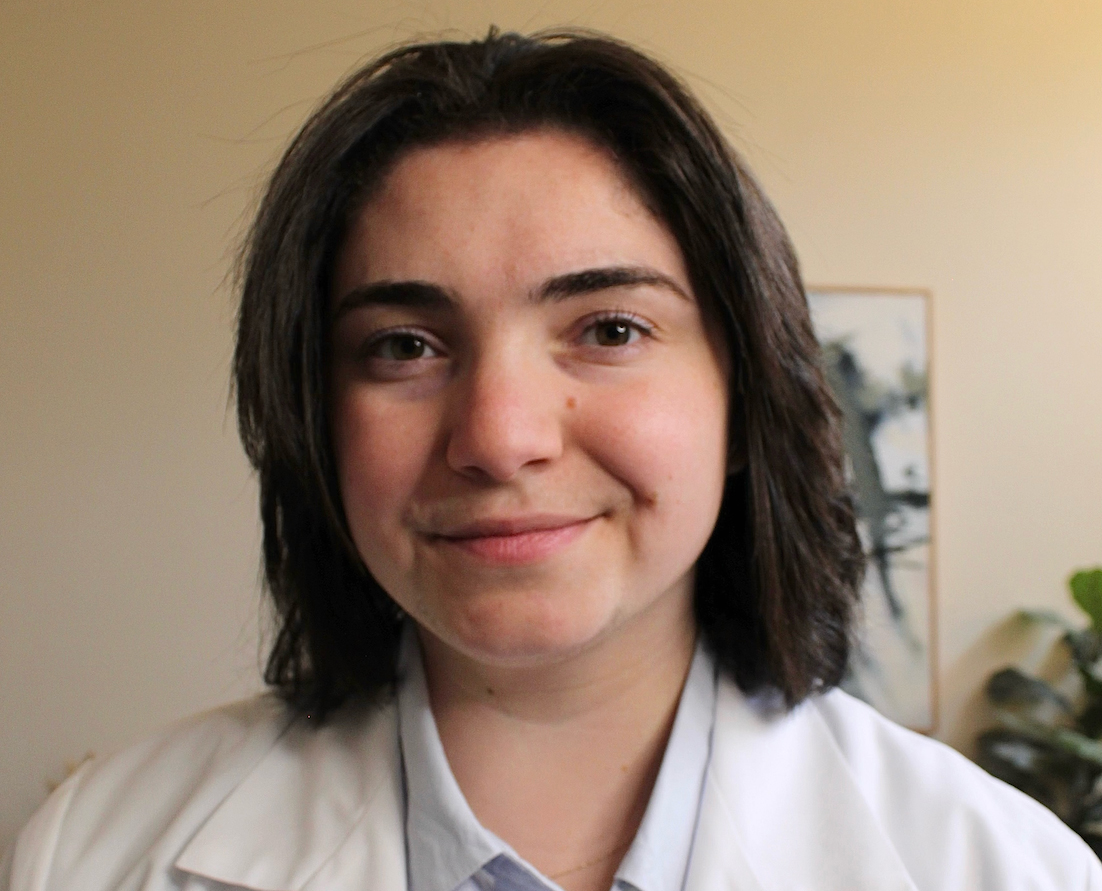
Atara Schulhof Seeks Holistic Health Care Beyond the Scale
Medical Student Opens Conversations in Size-Inclusive Medicine on Campus

From an early age, Atara Schulhof, SOM Class of 2027, was driven by an insatiable curiosity about the world—especially the human body. Access to information and discussions about science were not always readily available in their community. This led them to seek answers in books. Their passion for medicine wasn’t just born out of fascination; it was personal. “A few people in my life unfortunately passed away, and I felt really helpless because of my lack of understanding, which reinforced my drive to search for answers,” said Schulhof.
Schulhof's education led them abroad, where they worked as a first responder—a transformative experience that deepened their understanding of patient care. Inspired by this enlightenment and a newfound fascination with neurosurgery after seeing a case of head trauma, they were well on their path to study medicine.
With a bachelor's in neuroscience and behavior from Barnard College, Schulhof arrived at New York Medical College (NYMC) to pursue their doctorate, where they also continued their research in neurology and psychiatry. They have explored psychedelic-assisted therapy and other areas in medicine they believe deserve more attention, aiming to address gaps in the field—like weight bias.
"There's a lot of assumptions made about the relationship between weight and health. A lot of research has capitalized on this assumption without parsing out the confounders of relationships and really looking into them in a scrutinized way," said Schulhof.
"Alternate Perspectives on Obesity and Hypertension," an article they co-authored published in Cardiology Review, is just one example of how Schulhof is tackling body weight bias in health care. Through the NYMC student organization they founded, the Association for Size-Inclusive Healthcare, they are also opening conversations on how to approach weight and health more inclusively in medical settings.
"I, along with friends of mine, have experienced conditions going undiagnosed simply because of weight," said Schulhof. "The moment I found a doctor who looked beyond my weight, we identified the real issue. So many people have similar stories—when a doctor shifts focus from weight to underlying health concerns, chronic diseases get diagnosed. Weight is an elephant in the room, distracting from real medical issues and ultimately causing harm to patients."
Through events such as book clubs that spark meaningful discussions and a conversation on eating disorders with the Office of Student Mental Health and Wellness, the organization fosters dialogue on critical health care issues. The club has become a space for students to share their experiences and reflect on the kind of physicians they aspire to be.
"There were times in my life when I needed a physician—or even just an adult—to notice what I was going through, and going to the doctor was my only outlet for that," said Schulhof. "I want to be the kind of physician who recognizes when something is wrong, steps in when needed, and provides my patients with the information and support they need to feel safe and stay healthy."
This year, the club will launch the Journal for Size-Inclusive Healthcare, aiming to continue the conversation not only through data and statistics, but also by sharing personal experiences between patients and their relationships with physicians.

